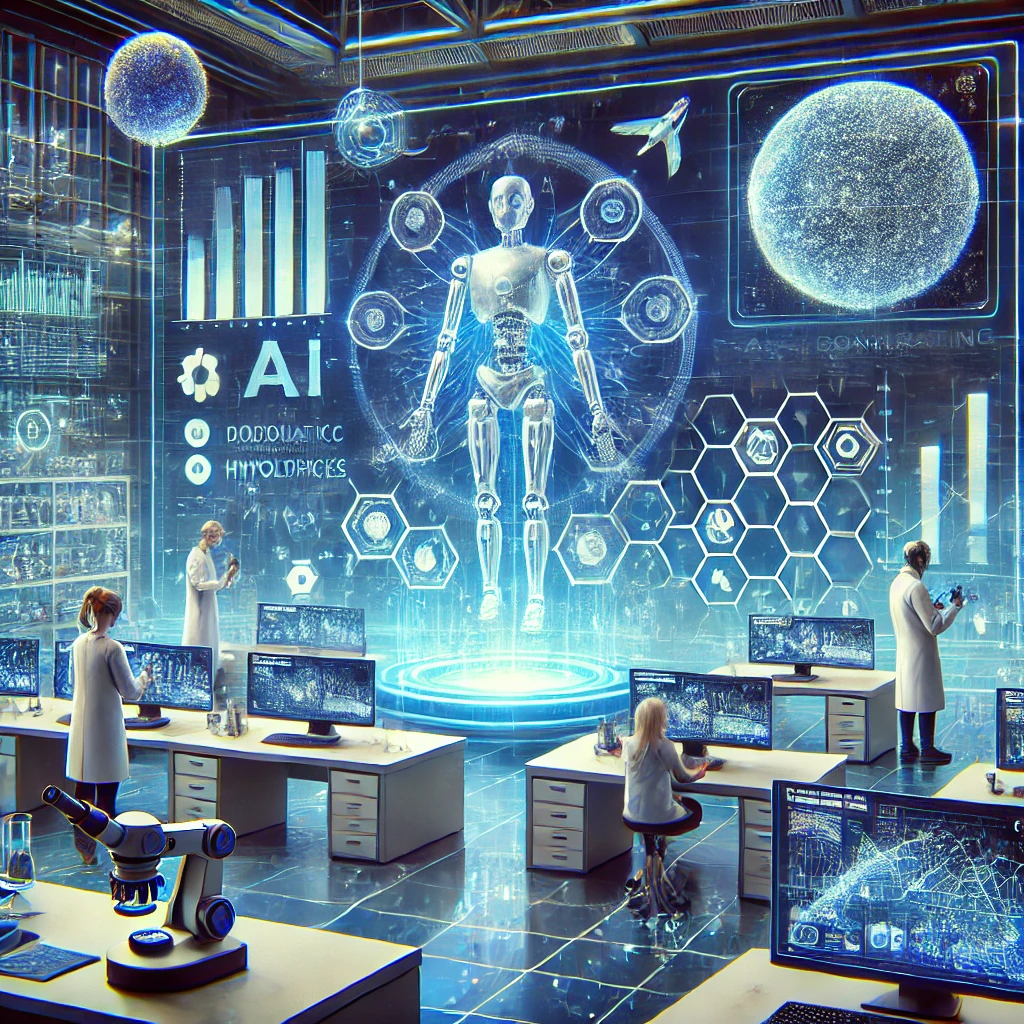Why AI researchers aren’t at the forefront of scientific breakthroughs yet
AI is transforming scientific discovery, but AI researchers aren’t at the forefront. What’s stopping them from taking the lead?

Artificial Intelligence (AI) is revolutionizing scientific discovery - accelerating drug development, predicting climate patterns, and even designing new materials. However, a new study titled "Unlocking the Potential of AI Researchers in Scientific Discovery: What Is Missing?", conducted by researchers from Westlake University, China, reveals a surprising gap.
Despite AI’s growing role in research, AI researchers themselves are rarely leading scientific breakthroughs. The study found that while AI is increasingly integrated into scientific disciplines, 90% of AI-powered research is led by experimental scientists rather than AI specialists. As a result, AI is often used as a tool for data analysis, rather than as a fundamental driver of scientific discovery.
The study projects that AI-driven scientific research will grow from 3.57% of total publications today to 25% by 2050, but this can only happen if AI researchers play a more central role in formulating hypotheses and designing experiments rather than just supporting existing research.
The AI revolution in science - But who’s leading it?
AI’s ability to process vast amounts of data and detect patterns far beyond human capability has already led to major breakthroughs. For instance, AlphaFold has revolutionized protein structure prediction, solving a decades-old problem in biology. AI-driven drug discovery is cutting R&D timelines from years to months, significantly accelerating new treatments. Additionally, AI-powered climate models are providing more accurate long-term predictions than traditional methods.
Yet, despite these advancements, AI researchers are often treated as “technical assistants” rather than principal investigators in scientific research. Most high-impact AI-driven studies are still led by biologists, chemists, or physicists, while AI researchers play a secondary role.
So why isn’t AI at the forefront of driving new scientific questions?
The study identifies three major barriers preventing AI researchers from taking the lead in science:
- Limited Domain Knowledge – AI specialists often lack the scientific expertise needed to frame the right research questions. Without deep understanding of biology, chemistry, or physics, AI researchers may struggle to apply their models effectively.
- Collaboration Challenges – Many scientific fields still lack structured collaboration between AI researchers and experimental scientists. Without strong partnerships, AI remains a supporting tool rather than a driver of innovation.
- AI’s Reputation as a “Tool” Rather than a Science – In many research communities, AI is still seen as a way to process data, rather than a fundamental component of scientific discovery. This perception limits its potential impact.
These challenges mean that most AI innovations in science come from experimental scientists learning to use AI tools - rather than AI researchers pushing the boundaries of what AI can do in science.
How AI researchers can lead the next scientific breakthroughs
The study suggests three key strategies to reposition AI researchers as leaders in scientific discovery:
Making AI more accessible to scientists
Many experimental scientists struggle to use AI due to complex coding requirements. AI researchers can bridge this gap by developing intuitive, user-friendly AI platforms for scientists to use. For instance, AI-driven research tools like DeepMind’s AlphaFold have become industry standards because they are accessible to biologists without AI expertise.
Bridging the knowledge gap
AI researchers need a stronger understanding of scientific domains to drive meaningful research. The study suggests:
- Interdisciplinary AI training programs to help AI researchers learn biology, chemistry, and physics.
- More AI-driven scientific research centers, where AI experts work directly with scientists rather than in separate teams.
- Encouraging AI specialists to co-author major research papers, ensuring their contributions shape the research direction - not just the analysis process.
Building an AI-driven scientific ecosystem
For AI to become a primary driver of discovery, AI researchers must move beyond tool-building and actively participate in formulating research questions and designing experiments.
- AI researchers should focus on developing AI that not only analyzes data but also generates hypotheses - taking inspiration from self-learning AI models in physics, medicine, and environmental science.
- Universities and research institutions should establish AI-led research labs, where AI specialists lead scientific inquiry, not just computational tasks.
By integrating AI more deeply into the scientific thought process, researchers can unlock AI’s true potential in discovery.
What’s next? The future of AI in science
The study predicts that AI-driven research will expand significantly over the next two decades. Some key trends include:
- AI-powered laboratories: Automating experiments with robotics and AI-driven systems to speed up scientific discovery.
- Large-scale AI models for scientific research: AI generating hypotheses, predicting new materials, and designing drugs.
- AI becoming a principal investigator in research: AI-driven discoveries leading to Nobel Prize-level breakthroughs.
If we move forward with these changes, AI’s contribution to scientific discovery could grow to 25% of all major research publications by 2050, revolutionizing fields like medicine, climate science, and quantum computing.
- FIRST PUBLISHED IN:
- Devdiscourse










